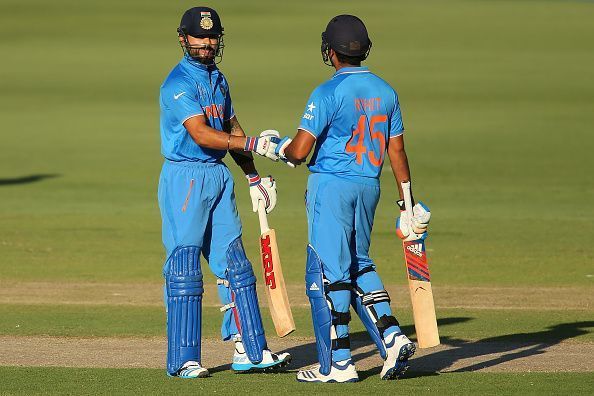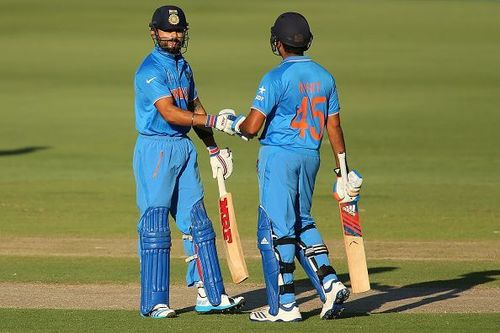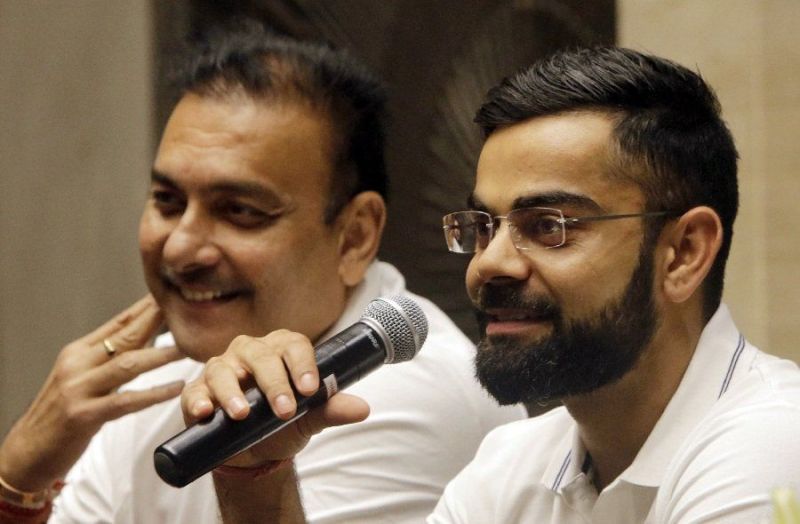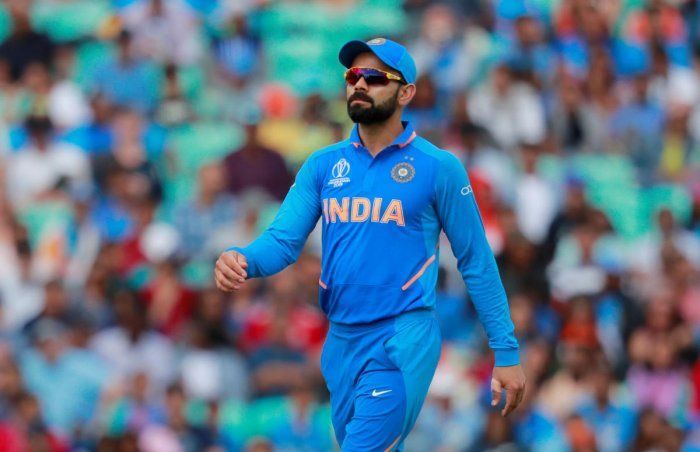
Should the Indian cricket team adopt the 'split captaincy' policy?

Virat Kohli has an enviable record as an ODI skipper, with 56 wins from 77 games. His win percentage of 72.73 is the second highest for those who have captained in a minimum of 20 games, only behind Clive Lloyd's 76.19%.
As captain, Kohli has taken his team to the final of a Champions Trophy and a World Cup semifinal. He also became the first Indian skipper to win bilateral ODI series in Australia and South Africa.
And the additional responsibility has not come at the cost of his batting -- he has the highest batting average of any captain (77.39) and second most hundreds (19).
Why question Kohli then?
The numbers are stunning for any skipper. But what these numbers do not show is the lack of long-term thinking that has prevailed during Kohli's tenure as a skipper, which ultimately cost India the World Cup.
The top order, the wrist spinners and the death-bowling duo of Jasprit Bumrah and Bhuvneshwar Kumar have been the pivotal reasons for India's wins. But the major reason for the defeats through this period has remained constant -- the non-existent middle order.
MS Dhoni expressed in 2015 that he wanted to bat at No. 4 because he wanted others to take up the mantle of finishing. That far-sightedness went missing once Kohli took over.
Dhoni, despite his waning abilities, was asked to finish games and India did not invest enough in the likes of Hardik Pandya and even Kedar Jadhav as finishers. Coach Ravi Shastri went as far as saying that if Dhoni had gotten out after being sent at 5/3 in the semifinal, it would have killed the chase. He was always their No. 1 finisher.
The other options in the middle-order - Rishabh Pant, Hardik Pandya, Vijay Shankar, Kedar Jadhav, Lokesh Rahul and Dinesh Karthik - have batted only 98 times in the last four years, compared to the 188 innings by the English trio of Ben Stokes, Jos Buttler and Eoin Morgan. The inexperience was mainly because no single player was given a long run at any particular spot, especially in the No. 4 slot.
Ambati Rayudu, who batted at No. 4 the highest number of times in this period, was ultimately dropped from the squad and was not even considered as a replacement. No single player was invested in properly.
This poor management did cost India the World Cup, as they were clearly not prepared for a top order collapse. Having a plan and not being able to execute it is bad, but going in without a plan is worse. Even after two years of experimentation, a batsman could not be found to shore up the middle order.

Moreover, Kohli still looks like someone who lacks alternate ideas when his Plan A does not work. Questionable team selections is another issue with his otherwise superb stint. His feud with the then coach Anil Kumble and his demand for Ravi Shastri as the coach was entertained by BCCI, as a measure of backing the skipper. But now that the think-tank's mistake has cost the World Cup, the BCCI might want to look at making some changes.
Looking forward to the next World Cup - to be held in India - there is a good chance that Rohit Sharma will be handed captaincy duties in limited overs. The decision might not be that bad, keeping in mind Rohit's proactive captaincy. A fresh mind and a fresh start for a four-year journey might just be the tonic this team needs.
Would a change help?
There's no doubt that Kohli and Shastri's inability to solve the No. 4 problem cost India. But the fact that Kohli was spot on with his on-field captaincy during the World Cup cannot be ignored. He was at his best ever with his field placements, bowling changes and overall on-field attitude in the World Cup.
He has only just started to be a smart captain, and it will not be fair if he does not continue to lead the side.

Kohli has thrived as a batsman too since taking over the responsibility. Relieving him of captaincy as a knee-jerk reaction to the World Cup exit might actually harm his batting.
With a possible change in coach, and someone who can bring a fresh perspective joining the team, Kohli can actually bring the team back on track and also build a strong squad for the next World Cup. He might even become a better captain if he learns from the mistakes of the last few years - even better than his predecessor.
Whatever decisions the selectors take, they must keep the next World Cup in sight. Improper handling of this situation might lead to instability within the team.
Split captaincy has done wonders for teams like England, but has never worked for India. So if they decide to adopt the policy, the right personnel need to be present in the support staff to handle the situation.
No doubt, both Rohit and Kohli ultimately want India to win the World Cup and will give their best. But it is now up to the selectors to decide who to pick.